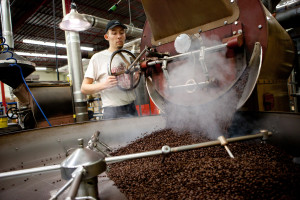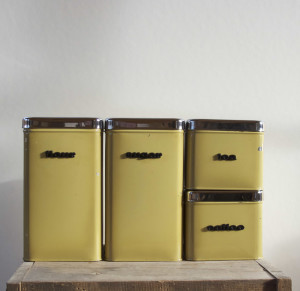So up to now we have discussed what type of water you should use, varieties of coffee beans and the different types of roasts. In today’s post we post we’re going to talk about how to store the coffee beans.
As I studied how to make a great cup of coffee, I’ve come to believe that attention to detail is huge. I’ve also come to believe the “average Joe” on the street, like me, is so used to having “average joe” that sometimes getting over the hump of small things like how to best store your coffee, can be quite challenging. I mean we all have our habits and those habits can become ingrained, and become part of our rituals. Sometimes we think that our habits are good habits, even though when in fact they are not good habits and the smallest change in the habit, could dramatically, impact the outcome for the better.
How fresh your coffee is one such outcome that is greatly impacted by how you store the coffee. Freshness is a function of the age of your beans…..okay I know what you’re thinking…..well duh Island Mike, freshness always has to do with age….what a blinding flash of the obvious statement!!
But let me explain.
Roasting the coffee is what starts and causes your coffee to start going stale. I know, weird right? The actual act of roasting the coffee bean starts a chemical reaction that once started cannot be completely stopped. So interestingly, green coffee beans can actually be stored for quite some time. In fact some of the info I read indicated that green beans can be stored for years with very little degradation. But once the beans are roasted the process of going stale begins!
Coffee has a peak time after being roasted where the flavor is the best, but after that peak time the flavor and aroma start to diminish, i.e. the coffee gets stale. Interestingly, there are many differing opinions as to when how long this time frame is, however, generally speaking you probably don’t want your coffee to be any more than two weeks post roasting so as to savor its maximum freshness. So only purchase in quantities that will last for approximately that amount of time.
Some roasters are now stamping the date of when their coffee was roasted, which is very helpful! I saw this on some coffee at the “Fresh Market” supermarket recently. Great idea roasters!
When purchasing your coffee from a supermarket, two concepts to remember – (1) Vacuum sealed and (2) One way valves. Studies have shown that vacuum sealed packaging reduces the amount of oxygen in the bag, and thus decreasing the likelihood of coffee becoming stale (more on this below), although there is some thought that that vacuum sealing also draws out some of the flavor and aroma during the actual process of vacuum sealing. One way valves on the other hand protect the coffee from its enemies (see below) while keeping in carbon dioxide, which is good for your coffee.
o buying coffee beans that has been vacuumed sealed or placed in a bag with a one way valve is not a bad way to purchase your roasted beans if you’re not in area where you can’t purchase freshly roasted beans. That said, once the coffee is exposed to air, the same enemies of your coffee come into play.
The Enemies of Your Coffee!
So what are the major enemies of your perfectly chosen, delectable, amazing, coffee bean from some far away land??
Oxygen – From the research I did, this seems to be enemy #1 against your coffee. Many of the components that make up a roasted coffee beans flavor and aroma are drastically impacted by oxidation. Thus the more time the coffee bean is in the open air, the more of the “goodness” it loses. Not good. So it’s best to keep your beans in a container that keeps out as much of the air as possible. There are a few good containers on the market that can help with this. Here are a few, (I do receive an affiliate commission on these, but it doesn’t cost you any more) that I would recommend that are at my Coffee Bean Paradise Amazon Store where you won’t see any canisters like those above 🙂
Ground vs Beans – Best to buy whole beans as they stay fresher longer. Grounding coffee, causes it to have more surface area and thus exposing it more to the enemies of your coffee, i.e., oxygen. Best to buy whole beans and grind them as you need them.
Storage temperature – Like other foods, keeping you coffee cool, will prolong its life. However I do not recommend placing your coffee in the fridge or freezer, due to the humidity, and the aromas of the other foods which can impact your coffee. However, if you have purchased a large quantity of coffee, the beans can be stored in an airtight bag, preferably vacuum sealed for up to a month (National Coffee Association USA), however it probably will not taste or smell as good. Once the beans are removed from the freezer and the bag is opened, do not put them back in the freezer as moisture will form on the beans thus causing further degradation.
Moisture & Light – Coffee after it is roasted can draw in water from the ambient environment. This is especially true in a high humidity environment………..say,like on an Island J). When it does so, the degradation of the coffee increases – again not a good thing. As far as light, it can also degrade your coffee but not usually to the extent as the other enemies, but still it best to keep your beans in the dark.
So what’s the bottom line?
- Only buy what you can use within a week or two.
- Look for vacuum sealed or bags that have a one way valve if buying in a supermarket.
- Look for bags that have the roasting date.
- Grind your coffee as you need it.
- Keep your coffee stored in a dark, dry location, at room temperature. (not next to your oven/stove) The canisters recommended above are perfect for storing your beans on a shelf in your pantry.
So that’s it for the basics storing your coffee. I hope that was helpful in improving the outcome of your coffee experience.
All the best,
Island Mike Java
Resources:

